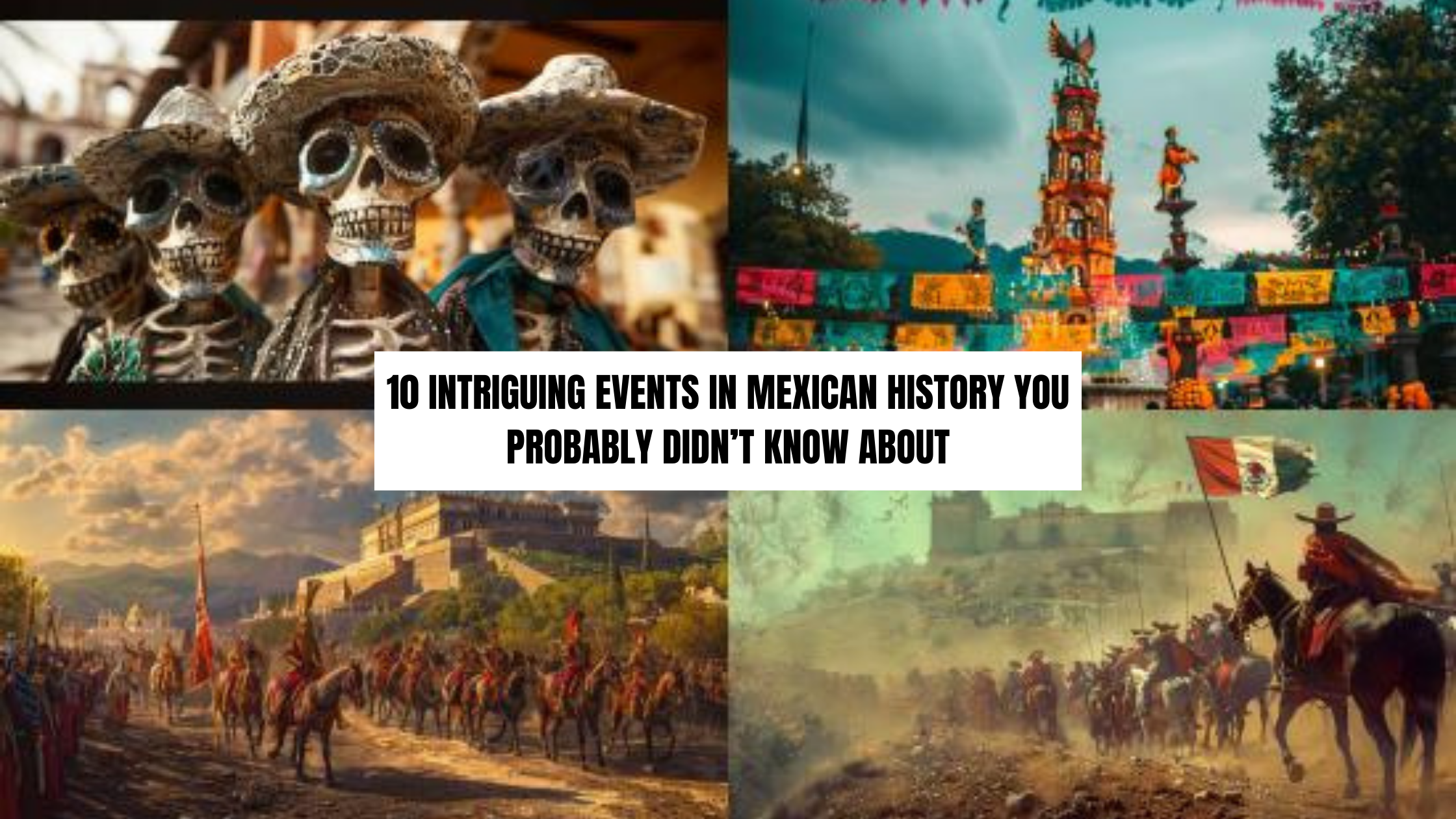Mexico is a country rich with history and culture, known globally for its contributions in various fields. However, beyond its well-known achievements, Mexico’s past is filled with lesser-known yet fascinating events. Here are ten such events that highlight the diverse and intriguing history of this Central American nation.
1. The Taco Revolution
When Spanish conquistadors arrived in Mexico, they dismissed the local cuisine, considering it primitive. Despite their disdain, Mexican food, especially tacos, became a symbol of cultural identity and resistance. Tacos, initially seen as low-class by the Spanish, were embraced by the indigenous people as a form of empowerment. Today, tacos are celebrated worldwide, symbolizing Mexican culinary heritage.
2. The Sacred Role of Xoloitzcuintli Dogs
In ancient Aztec culture, the Xoloitzcuintli, or Mexican hairless dog, held a significant spiritual role. These dogs were believed to guide the souls of the dead through the underworld. This belief is honored today in modern Mexico with a special “Dia De Los Muertos” celebration for pets on October 27, reflecting the deep cultural roots and respect for these animals.
3. The Pastry War
The Pastry War began in 1838 when a French pastry chef in Veracruz, Monsieur Remontel, demanded compensation from the Mexican government after his shop was damaged. When Mexico refused, France blockaded Mexican ports and captured Veracruz. The conflict, fueled by broader issues like unpaid loans, ended in 1839 with Mexico meeting France’s demands, highlighting international tensions over seemingly trivial disputes.
4. Mass Hysteria in a Mexican School
In 2006, a mass hysteria event occurred at an all-girls school in Mexico City. Hundreds of students exhibited symptoms like nausea, paralysis, and anxiety. Investigations revealed no environmental cause, concluding it was a rare case of mass hysteria, demonstrating the power of psychological influence in close-knit communities.
5. The Tortilla Protests of 2007
In 2007, rising corn prices led to a doubling of tortilla costs, sparking mass protests in Mexico City. Tens of thousands of people demanded government intervention to control prices, emphasizing the importance of tortillas in the Mexican diet. The protests highlighted the economic struggles of the poor and the significance of staple foods in social stability.
6. The Avocado Wars
In Michoacan, Mexico, the lucrative avocado industry has attracted violent attention from drug cartels. These groups have extorted farmers and taken control of avocado farms, leading to the so-called “Avocado Wars.” The conflict underscores the intersection of agriculture and organized crime in Mexico, driven by the global demand for avocados.
7. The Legend of the Chupacabra
The chupacabra, a mythical creature first reported in Puerto Rico, quickly became a prominent urban legend in Mexico. Described as a livestock predator, its origins are believed to be linked to the Xoloitzcuintli dogs. This legend reflects Mexico’s rich folklore and the blending of ancient beliefs with modern myths.
8. The Tampico Affair
In 1914, the Tampico Affair nearly led to war between the United States and Mexico. American sailors were detained by Mexican forces, leading to demands for an apology and a 21-gun salute. When Mexico refused, the U.S. occupied Veracruz. This incident, occurring during the Mexican Revolution, exemplifies the fragile diplomatic relations and the complexities of early 20th-century international politics.
9. Chocolate Controversies with the Spanish
Chocolate, a staple in Aztec culture, was viewed with suspicion by Spanish conquistadors. They believed it had aphrodisiac properties and feared it as a potential tool for rebellion. The Spanish prohibited Aztec women from consuming chocolate, associating it with witchcraft. This historical tension highlights the cultural clashes and misunderstandings between the indigenous people and European colonizers.
10. Birth of Parícutin Volcano
In 1943, a farmer in Michoacan witnessed the birth of Parícutin, the world’s youngest volcano. Over the next decade, the volcano grew rapidly, providing scientists a rare opportunity to study its formation in real time. Parícutin’s emergence transformed the landscape and offered invaluable insights into volcanic activity, showcasing nature’s unpredictable power.
These ten events showcase the rich and varied tapestry of Mexican history, filled with cultural significance, international intrigue, and natural wonders. Each story adds depth to our understanding of Mexico’s past and its enduring impact on the present.



